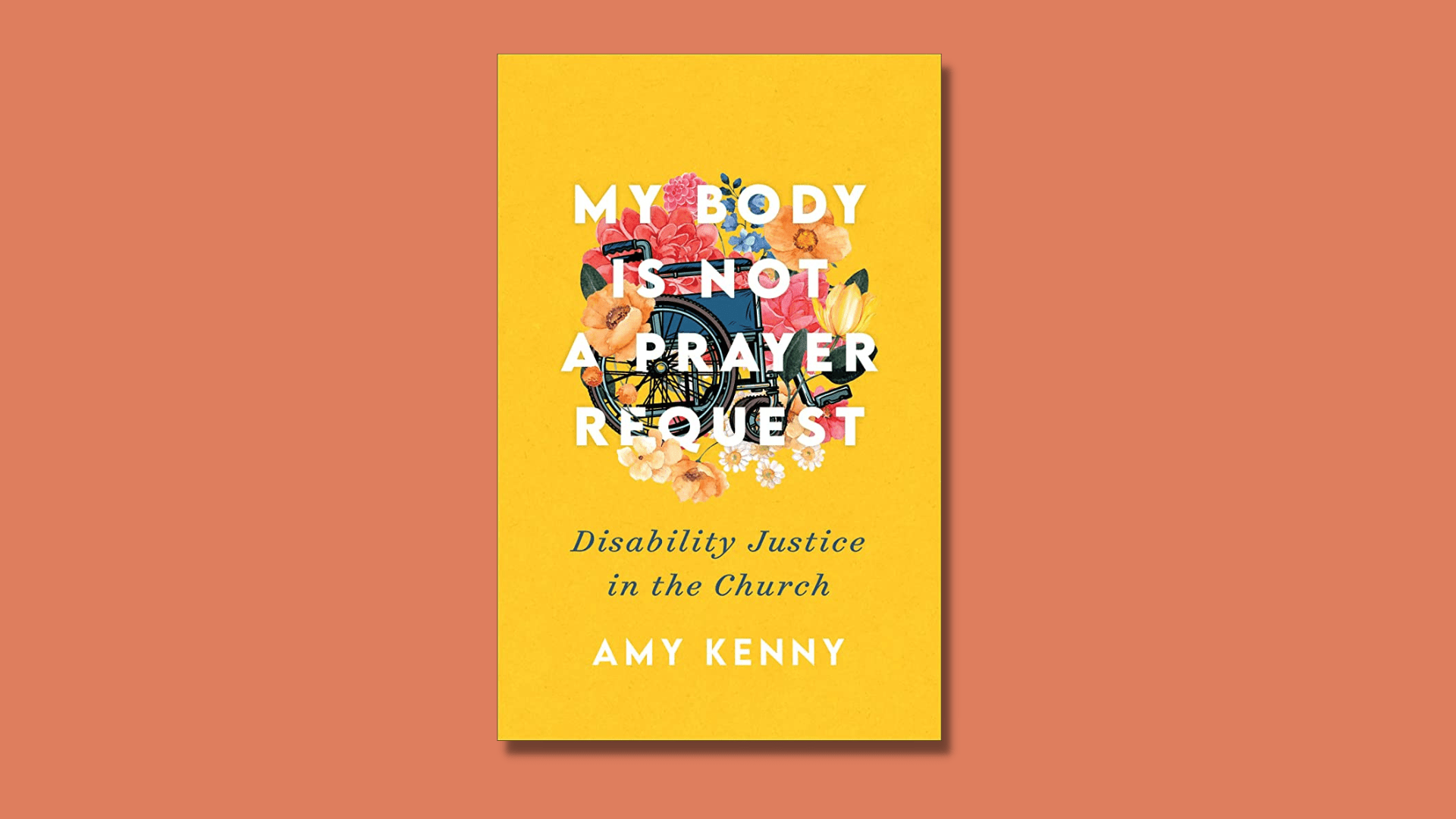My Body Is Not a Prayer Request: Disability Justice in the Church
Amy Kenny
Brazos Press, 208 pages
As I read My Body Is Not a Prayer Request, I felt myself slipping lower and lower in my seat. I thought of the women in my church who have to drag their walkers up and down our stairs, the visually impaired people who sit through the videos I play
in service without any explanation of the images that flash across the screen, the youth with reading challenges who have to fake their way through word games I play at youth group. I used to imagine us as a welcoming space, but the further I got into Amy Kenny’s book, the more I felt convicted about all the ways I make the people with disabilities in our community make accommodations for the church, instead of the other way around.
Church folk, in Kenny’s experience, tend to want to fix her before they make room for her. She’s viewed as deficient, problematic, not quite whole. Churches want to simultaneously erase her disability and objectify her for it. They refuse to see her as made in the image of God, sanctified, redeemed, and disabled. She’s faced inaccessible church buildings and pulpits, ableist language in music, and people who want to pray for her to be cured before they listen to her talk about her own experience of God and the world. She’s not asking to be special, she’s fighting to be equal, to be seen as human, as worthy and as full of gifts as anyone else.
Kenny’s theology is provocative, urging us to rethink the way we’ve always read biblical texts about disability. Disability can be a way of revealing God to the larger community, she argues, using the story of Jacob and his limp after encountering God and the resurrected Jesus proving himself by showing his scars. She talks about the difference between healing and curing, how Jacob was actually healed and trans- formed by his wrestling match, instead of broken. She talks about the banquet table in Luke 14 as an accessible space, where we are instructed by the king to go quickly out and bring in poor and disabled people specifically. “Those of us who are disabled are not just tolerated,” she writes, “we are invited, sought out, celebrated in the kingdom of God.”
Kenny’s words about inclusive spaces made me ashamed that the only attempts our church has made toward accessibility have been half- hearted, using excuses she lists specifically in her book: the building’s too old, it’s too expensive, it would take too much work. Not-so-fun fact: churches actually fought to be excluded from the Americans with Disabilities Act.
And they won, meaning churches earned the right to have spaces that did not have to include disabled people. But Kenny says accessible spaces don’t just mean accessibil- ity for disabled people, accessible spaces are accessible for everyone. If we build spaces with disabled people in mind, everyone benefits. Everyone has a place. “God doesn’t remake bodies to fit the world,” Kenny writes, “but restores the world to welcome our remade bodies.”
If this window into Kenny’s book is making you cheer, wonderful! Read it and cheer the whole way through. If it’s making you feel uncomfortable (and I was defi- nitely in that camp!), maybe receive that as a Holy Spirit nudge that there might be something to learn. Receive Kenny’s chal- lenge and encouragement that churches should not be spaces where people with disabilities find themselves ignored, ques- tioned, or challenged either by words or facilities, but rather a foretaste of the great banquet, where we all come to the table, just as we are.














